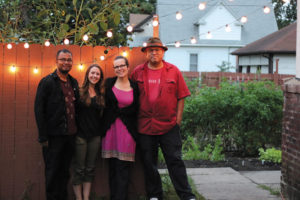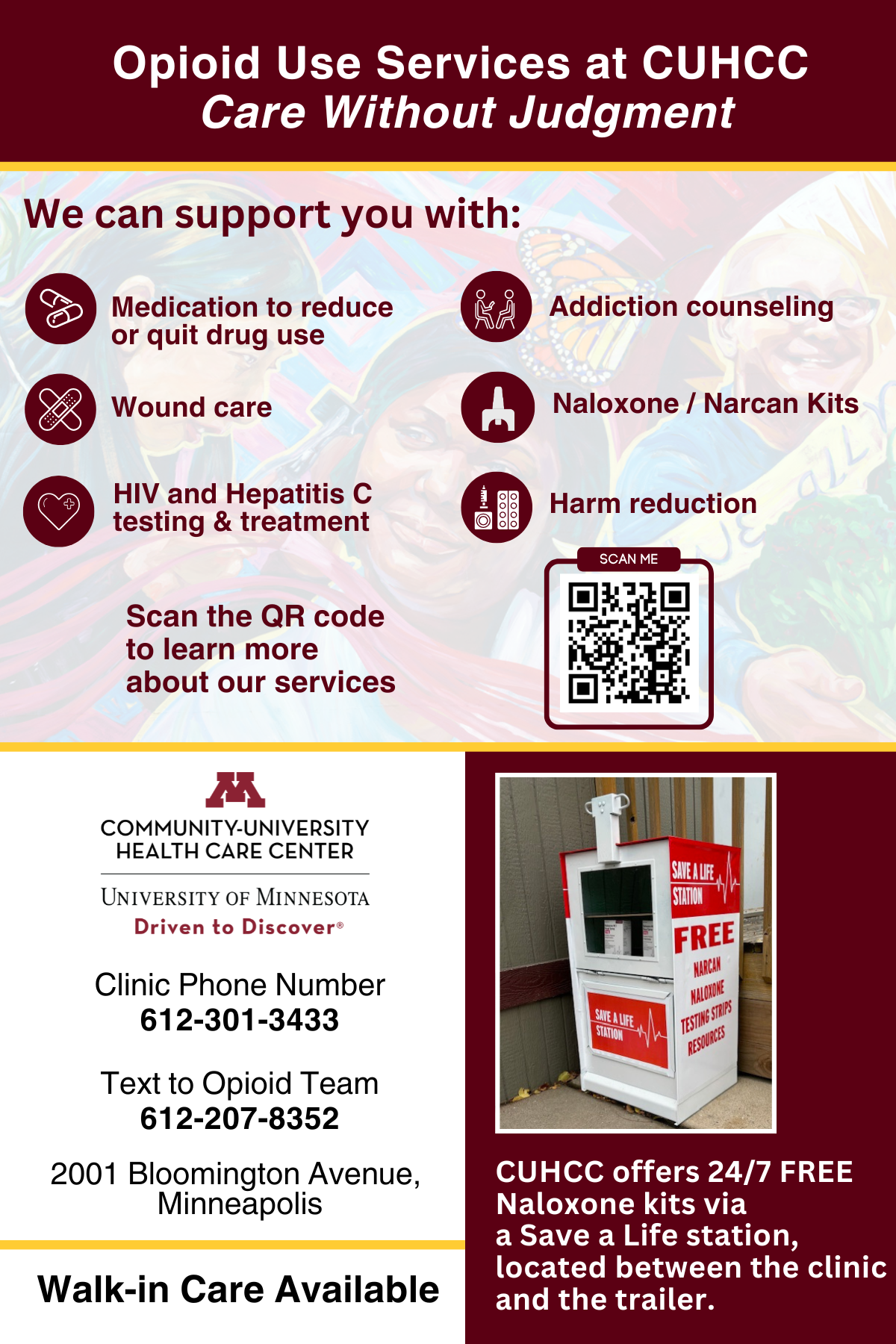
From left are Gandhi Mahal Interfaith Garden partners last summer: Ruhel Islam, owner and executive chef at Gandhi Mahal Restaurant; Claire Baglien, Minnesota Interfaith Power & Light office manager; Ritchie Robertson Two Bulls, arts therapist for Minnesota Indian Women”'s Resource Center; and the Rev. Robert Two Bulls of First Nations Kitchen and All Saints Episcopal Indian Mission.
By Marilyn Moyer, Guest Columnist
In a backyard garden tucked into the Corcoran neighborhood, far more is flourishing than tomatoes, eggplant and squash. Here, people whose roots lie worlds apart are working together to strengthen the health of their community, while doing their part to address climate change.
The Gandhi Mahal Interfaith Garden is a unique collaboration between a Bangladeshi Indian restaurant, a Native American ministry and a non-profit working to address climate justice with faith communities across the state.
On May 12, these unlikely partners launched their urban garden”'s second season. Dozens of volunteers turned out to prepare the soil and plant the seeds that will grow into a wide variety of fresh vegetables. Those include foods that are traditional staples in Bangladeshi cooking ”“ such as spicy Asian chilies and cilantro ”“ as well as those culturally connected to Native Americans, such as certain varieties of squash and beans.
Many people will share in the coming bounty, including the paying diners at nearby Gandhi Mahal Restaurant, and the guests who gather at First Nations Kitchen for a free, indigenous diet-based meal on Sunday evenings. The kitchen is part of the outreach ministry of All Saints Episcopal Indian Mission.
After the Sunday evening meal, people from across the neighborhood, as well as First Nations Kitchen”'s guests, are welcome to gather at the garden, four blocks from where dinner was served.
“People who come for open garden night can pick the produce they want to take home,” explained Claire Baglien, who oversees the garden and works with volunteers to tend it.
Personal connections also grow in the garden”'s relaxed environment.
“On Sunday evenings, people like to hang out here and get to know others in the community,” Baglien said. “The neighborhood is a diverse place, with people from many different backgrounds and faiths. Part of our mission is crossing boundaries by getting people to really know each other.”
Another major mission behind the garden: Educating residents about the problem of climate change and engaging them in protecting their piece of the planet.
Baglien”'s work in the garden is part of her job at Minnesota Interfaith Power & Light, which brings Minnesota”'s faith communities together to address climate change. The group conceived the idea of the Gandhi Mahal Interfaith Garden, and collaborated with the Gandhi Mahal Restaurant”'s owner, Ruhel Islam, and Ritchie and Robert Two Bulls, who run First Nations Kitchen to make it happen.
How does a backyard garden help combat the effects of climate change?
“Industrial farming operations produce most of the food in our country, but they contribute greenhouse gases that are changing the Earth”'s atmosphere and the world”'s climate,” Baglien explained. “Soil erosion is also a big problem that results from industrial farming. In our backyard garden, we focus on creating and maintaining healthy soil on a small scale to inform and inspire how we should be caring for our soil worldwide.”
The success of the Gandhi Mahal Interfaith Garden was recently captured in a video produced with funding from the Center for Prevention at Blue Cross and Blue Shield of Minnesota. The center is dedicated to making a positive difference in the lives of Minnesotans by showing how their surroundings can impact their health.
“We support the work of the Gandhi Mahal Interfaith Garden, which is helping address healthy eating and health inequities in our state, particularly by race, incomes and cultures,” said Janelle Waldock, vice president of Community Health and Health Equity at Blue Cross and Blue Shield of Minnesota.
“We wanted to highlight what”'s possible when people come together to create the communities they envision for themselves and their families.”
Marilyn Moyer is a Center for Prevention consultant








